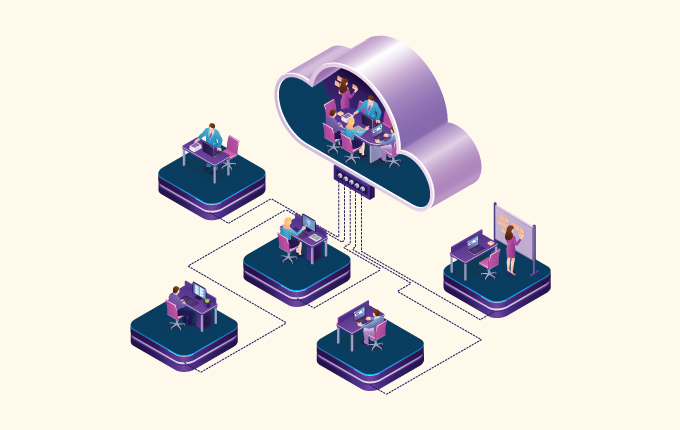[ad_1]
Even for a small business, the tech ecosystem, the collection of hardware and software that powers your company, can be complex. The bigger the organization, the greater the complexity.
With this complexity, comes a need to make sure that everything is working together in a way that helps you work towards your business goals. If your tech solutions aren’t creating a smooth workflow and generally make things easier for everyone, odds are you need to improve some aspect of it. That’s where IT integrators come into the picture.

What is an IT integrator?
IT integrators are tech professionals who work with your business to make sure that the technical products in your business work together. Integrators can be a crucial part in ensuring that you’ve got an ecosystem that collectively thrives, so to speak, rather than a tech landscape that is hostile to work with.
How does an IT integrator help your business?
Being able to make the most out of your tech infrastructure helps on multiple fronts. It’s one of those things that, once you go through the process, you wonder how you could ever live without having an integrator in place. It keeps people focused on their core tasks, rather than forcing them to jump around through different systems and platforms, and it helps make sure that you’re working in a fully protected environment.
Let’s explore how else using IT integrators can help your business.
It simplifies everything
Fewer things make life easier than a technical landscape that actually makes things easier. When you take stock of your business processes and practices, you start to notice things that can be made less complex. Integrators can be a big part of helping you understand where the complexity in your system is and find ways to remove it, either by introducing new tools or processes or by fine-tuning existing ones.
Saving you money
The more connected your tech is, the less you end up spending on not only the technology itself, but also on the people who use the system. If the way you work today has a lot of manual steps where people have to stop to cut and paste information or they have to switch over to several different tools to make something, you’re spending more money than necessary on any given task.
Integration helps you create smooth workflows through your processes by introducing tools and automations that complicate the process. Working can not only work faster, but they can do more work in less time for more customers because of that.
Stronger security
Fully integrated, connected systems have fewer points of failure than a setup that feels like it was put together by different people in different decades (which is entirely possible in the tech world). They’re more secure because they can all be covered by the same umbrella, so to speak. You’re not using Tool A for system 1 and Tool B for system 2 and Tool C for system 3. You’re covering everything at once. This means you only have one system to monitor and configure, and fewer things that you could miss or forget about.
This is a critical point to consider, especially with the constant increase in cybercrime that we see. The more secure your system is, the more trust you build with your customers.
Increased efficiency and flexibility
Similar to what we mentioned above with saving you money, an integrated system, and modern infrastructure can lead to a huge boost in productivity. Along with removing the bottlenecks that come with outdated tools, you create a system that functions in a way that reflects how we work.
Shifting to the cloud, for example, helps you break away from legacy platforms and tools that can slow your business down. On top of that, you gain the ability to work from almost anywhere. If you need to do something while on a work trip, you have easy access to the tools you need. You’re not scrambling around hoping that you can work offline on your laptop and hoping you can sync things up later, you’re working in the exact same workspace you always do. This also gives you a way to change where you’re working on the fly. If you need to close the office, say there was a fire on-site, you can quickly transition to work from home without too much hassle.
This ability to work more efficiently and with greater flexibility can lead to happier workers (meaning less turnover), as well as help you stay afloat when things seem uncertain as we saw during the COVID-19 pandemic.
Scalability
The ability to scale up and down as needed is increasingly one of those things that either make or break a business. If you’re using an outdated system, you lack the flexibility to scale when you need to. You have to provision months in advance and, at best, you’re guessing what you’re going to need. This leads to overspending and, even worse, you risk still not having enough capacity.
An IT integrator can help you get the infrastructure you need in place to scale up and down as needed. This puts you into a situation where you’re both saving money and potentially making more money because you’re running at the capacity level you need, when you need it.
Think you need an IT integrator?
If you’re looking to create a modernized ecosystem where everything works together seamlessly, let’s talk.
We’ve been dedicated to helping out customers work faster, save money, and create more secure systems for more than 20 years. Contact us today to learn more about how we can help you.
The post ROIs Of Hiring And Managing With The Help Of IT Integrators appeared first on Manhattan Tech Support.
[ad_2]


